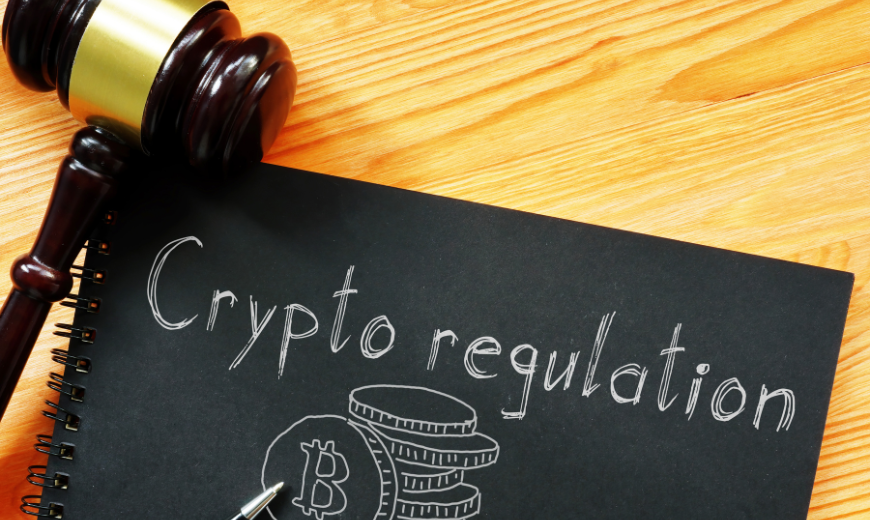
Initial Coin Offerings (ICOs) are a cutting-edge method of fundraising that promises innovation and democratization. Still, it needs to catch up on the edge of regulatory uncertainty. Although the appeal of ICO is captivating for both entrepreneurs and investors at the same level. A serious question arises: Are ICOs and Tokenization the friends or foes of Blockchain security laws?
In this web blog, we will untangle the web of security laws of Blockchain. We have tried our best to solve the maze of complex grey areas of ICOs and Tokens.
Suppose you have ever dreamt of a system where Startups can raise a fortune quickly through online financing. This system is here, which is possible with Blockchain technology and ICO. However, Blockchain has a shaky relationship with security regulation, especially when Initial Coin Offerings and tokens navigate the legal grey areas. Let’s move forward:
Security Laws Protect Investors in Traditional Market
Security laws are a bunch of regulations designed to safeguard investors in the traditional financial market. This law was made to:
- Handle Market Manipulation: Security laws help prevent practices like Artificial inflation of stock prices and the spreading of false information to alter investors’ decisions.
- Prevent Fraudulent: Regulations require companies to issue securities to reveal material information about their businesses and financial health. This often protects investors from misleading or deceptive practices.
- Increase Transparency: Companies issuing securities are required to follow certain reporting requirements to ensure investors have access to accurate and timely financial information.
Regulatory bodies like the SEC (Securities & Exchange Commission in the US) and similar entities in other countries also enforce these laws, ensuring a fair and transparent investment environment.
ICOs (Initial Coin Offerings)
ICOs are a new avenue for fundraising, and businesses use blockchain technology to raise capital. Let’s take a look at how it works:
- New Digital Tokens: A business creates a new digital coin on a blockchain platform. These coins represent different things, such as access to various amenities like products or services, a stake in the company’s gains, or a utility token used within the startup’s ecosystem.
- The contribution: The startups announce their Initial coin offerings and set a timeline for investors to buy these freshly created tokens. Investors usually only use cryptocurrencies like Ethereum or Bitcoin to purchase these tokens.
- Safe Funding: In addition to the offerings, startups raise capital to fund their business development. Startups sell their tokens for fundraising.
ICO present thrilling opportunities for startups to access funding quickly and efficiently. However, the lack of well-established regulations leads to a grey area regarding investors’ safety.
Tokenization
Tokenization offers a marvelous opportunity to transform assets into digital tokens. This technology is taking the idea of digital tokens a step further. It allows the representation of real-world holdings like bonds and stocks. Even physical objects can be used as assets on Blockchain as digital tokens. This uncovers a new world of possible sites.
- Fractional Ownership: Assets can be divided into smaller, tradable tokens, allowing for greater liquidity and accessibility.
- Faster Transactions: Blockchain technology facilitates secure and efficient transfer of ownership for tokenized assets.
- Reduced Costs: Eliminating intermediaries could reduce transaction costs associated with traditional asset ownership.
While tokenization offers numerous benefits, it also raises questions about how existing securities laws apply to these digital representations of real-world assets.
The Gray Areas: Navigating the Murky Waters of ICOs and Securities Laws
The innovative world of ICOs and tokenization presents exciting fundraising and asset management possibilities. However, a crucial question lingers: When do these offerings cross the line and become subject to traditional securities laws? This creates a grey area where opportunities and challenges coexist.
The Howey Test: A Legal Compass, But Not a Perfect Map
To determine if an investment qualifies as a security, legal frameworks like the Howey Test come into play. Established by the US Supreme Court, the Howey Test considers four key factors:
- Investment of Money: The investor must invest money or other valuable assets.
- Expectation of Profits: The investor expects to derive profits from the investment.
- A Common Enterprise: The investors’ profits are linked to the overall success of the venture, not solely to their efforts.
Dependence on Others’ Efforts: The investor’s profits are primarily dependent on the efforts of a third party (typically the startup team) managing the project.
Utility vs. Security Tokens: Blurred Lines and Regulatory Uncertainty
Companies try to navigate the grey area by issuing utility tokens. These tokens are designed to provide access to a specific product or service within the startup’s ecosystem. For example, a music streaming platform might offer tokens that grant users access to exclusive content or discounts.
However, the distinction between utility and security tokens can be blurry. If a utility token also promises future profits based on the success of the underlying project, it might be taken as a security under the Howey Test. This uncertainty creates challenges for both startups and investors.
The Ongoing Debate: Innovation vs. Regulation
The debate surrounding ICO and tokenization highlights the tension between fostering innovation and protecting investors. Regulators are grappling with how to adapt existing frameworks to this new landscape. Some argue for stricter regulations to prevent fraud and market manipulation. Others advocate for a more nuanced approach, allowing room for innovation while ensuring investor safety.
The lack of global harmonization in regulations further complicates matters. Startups may face varying levels of scrutiny depending on their location, creating an uneven playing field.
Global Inconsistencies: A Patchwork of Rules
Imagine a startup with a revolutionary idea seeking to raise capital through an ICO. However, the regulatory environment can vary dramatically depending on the location. Some countries, like Singapore, have adopted a more welcoming approach, establishing regulatory sandboxes for blockchain startups to experiment within a controlled environment. Others, like China, have taken a stricter stance, banning ICO altogether. This inconsistency creates a fragmented global market, hindering innovation and creating business uncertainty.
The Need for Regulatory Clarity: A Balancing Act
The lack of clear regulations poses a double-edged sword. On the one hand, it creates a breeding ground for potential scams and risks for investors. Bad actors can exploit loopholes without clear guidelines, leading to fraudulent practices. On the other hand, overly stringent regulations can stifle innovation and hinder the growth of legitimate businesses.
The ideal situation lies in striking a balance. Clear regulations are essential to:
- Provide Guidance: Businesses need clear guidelines on structuring their ICOs and ensuring compliance with relevant laws. This fosters a more predictable environment for conducting business.
- Protect Investors: Investors need assurance that they participate in legitimate offerings with proper disclosure and protection against fraud. Regulatory frameworks can help establish these safeguards.
- Foster Innovation: Regulations should be designed to nurture innovation without stifling the creative potential of blockchain technology.
Wrapping Up!
The potential of blockchain technology for fundraising and asset management is undeniable. However, navigating the grey areas surrounding ICOs and tokenization requires a clear understanding of securities laws and ongoing regulatory debates. Collaboration between regulators and the blockchain industry is crucial to developing a framework that fosters innovation while ensuring investor protection. Only then can we genuinely unlock this exciting technology’s transformative potential.
People Also Asked For:
Q.1. What are ICOs (Initial Coin Offerings)?
Ans: ICOs are a fundraising method where startups raise capital by issuing new digital tokens on a blockchain platform. Investors purchase these tokens with cryptocurrencies like Bitcoin or Ethereum.
Q.2. What are Security Tokens vs. Utility Tokens?
Ans: Security tokens represent investments with profit expectations, similar to traditional stocks or bonds. Utility tokens, on the other hand, grant access to specific products or services within a company’s ecosystem. The distinction can be blurry, and regulations are still evolving.
Q.3. How Do Securities Laws Apply to ICOs and Tokens?
Ans: Regulations like the Howey Test determine if an investment qualifies as a security. If an ICO meets the criteria (investment of money, profit expectation, joint enterprise, dependence on others’ efforts), it might be subject to existing securities laws.
Q.4. Are ICOs Safe Investments?
Ans: The need for clear regulations creates a risk for investors. Some ICOs may be scams, and the value of tokens can fluctuate significantly. Investors should research and understand the legal complexities before participating in an ICO.
Q.5. What’s the Future of ICOs and Tokenization?
Ans: The future is promising, but regulatory clarity is needed. Collaboration between regulators and the blockchain industry is crucial to developing a framework that fosters innovation while protecting investors.
Q.6. Where Can I Learn More About Blockchain and ICOs?
Ans: Numerous resources are available online, including industry publications, educational websites, and online courses. It’s essential to consult with qualified professionals before making any investment decisions.






